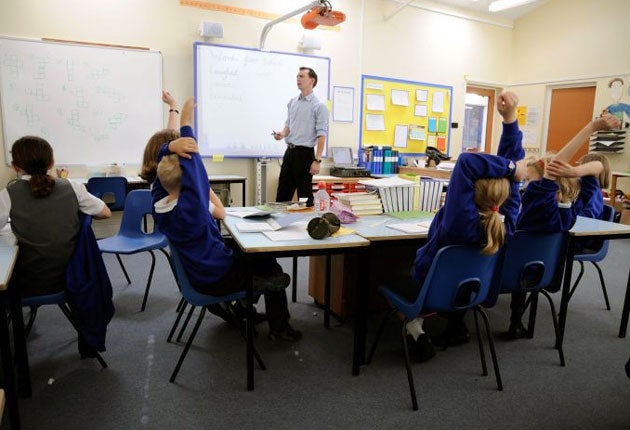Pupils and parents to trigger school inspections
Plans will make it more difficult for Ofsted to classify schools as 'good'

Parents and pupils may be able to trigger inspections of their schools through confidential hotlines under a new inspection regime to be introduced in September.
New plans for school inspections published today will also make it more difficult for schools to be classified as "good" by concentrating more on raw exam results.
The moves are part of a drive to "raise the barrier" for school inspections. They were introduced after it emerged that some of the schools on a government "hit list" of those where 30 per cent of pupils failed to obtain five A* to C grades at GCSE, had been classified as "outstanding" by Ofsted, the education standards watchdog.
Headteachers' leaders said the plans would make it increasingly difficult for schools serving deprived areas to do well in inspections.
Under the plans, schools classified as "satisfactory" or which have failed their inspection will be subjected to a regime of "no notice" inspections, meaning a team from Ofsted could turn up at any time to monitor lessons. Ofsted estimates 40 per cent of "satisfactory" schools will face a spot check.
Those classified as "outstanding" or "good" will be spared another inspection for five years.
However, there will be an annual online confidential survey of parents' views, where they can raise concerns about their child's school. If enough concern was registered, an inspection could be brought forward.
Christine Gilbert, the chief inspector of schools and chief executive of Ofsted, said the survey might be extended to pupils as well. She added that the changes to inspections "will make it harder to get good or outstanding". Inspectors will focus more on attainment – raw exam scores – although a school's progress will still be taken into account if it is improving while serving a disadvantaged area.
In addition, inspectors will double the amount of time they spend observing teachers' lessons. At present, they sit in on an average of 17 lessons while inspecting a secondary school. This will be doubled to 34.
At present, 15 per cent of schools are judged outstanding, 49 per cent good, 32 per cent satisfactory and 5 per cent inadequate. Sue Gregory, the Ofsted official responsible for drawing up the plans, said a school would not be judged "good" unless children were making good progress and achieving well.
John Dunford, general secretary of the Association of School and College Leaders, said of the proposals: "I am extremely concerned that Ofsted is again raising the bar and making it harder to get good and outstanding grades.
"It's like telling athletes running a four-minute mile that they need to do a mile and a quarter in the same time. The increased emphasis on raw results will make it more difficult for schools in challenging circumstances. Inspection has always been disproportionately stacked against these schools and this will make their tough job even harder."
Christine Blower, general secretary of the National Union of Teachers, added: "Many in the profession will suspect that the Government has pressured Ofsted into abandoning the principle of taking into account the profile of the school community."
Join our commenting forum
Join thought-provoking conversations, follow other Independent readers and see their replies
Comments
Bookmark popover
Removed from bookmarks